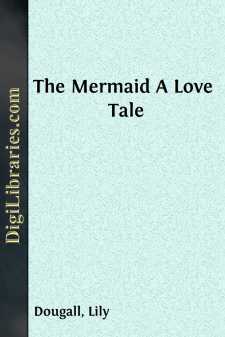Categories
- Antiques & Collectibles 13
- Architecture 36
- Art 48
- Bibles 22
- Biography & Autobiography 815
- Body, Mind & Spirit 144
- Business & Economics 28
- Children's Books 18
- Children's Fiction 14
- Computers 4
- Cooking 94
- Crafts & Hobbies 4
- Drama 346
- Education 58
- Family & Relationships 59
- Fiction 11835
- Games 19
- Gardening 17
- Health & Fitness 34
- History 1378
- House & Home 1
- Humor 147
- Juvenile Fiction 1873
- Juvenile Nonfiction 202
- Language Arts & Disciplines 89
- Law 16
- Literary Collections 686
- Literary Criticism 179
- Mathematics 13
- Medical 41
- Music 40
- Nature 180
- Non-Classifiable 1768
- Performing Arts 7
- Periodicals 1453
- Philosophy 65
- Photography 2
- Poetry 896
- Political Science 203
- Psychology 44
- Reference 154
- Religion 515
- Science 126
- Self-Help 85
- Social Science 83
- Sports & Recreation 34
- Study Aids 3
- Technology & Engineering 60
- Transportation 23
- Travel 463
- True Crime 29
Lily Dougall
Lily Dougall (1858-1923) was a Canadian author and feminist known for her novels, essays, and religious writings. She was born in Montreal and educated in Scotland and Canada. Dougall's works often explored themes of social justice, women's rights, and spirituality, reflecting her progressive views and deep interest in theology. Her notable novels include "Beggars All" and "The Summit House Mystery," which combined social commentary with engaging storytelling.
Author's Books:
Sort by:
by:
Lily Dougall
In the United States of America there was, in the early decades of this century, a very widely spread excitement of a religious sort. Except in the few long-settled portions of the eastern coast, the people were scattered over an untried country; means of travel were slow; news from a distance was scarce; new heavens and a new earth surrounded the settlers. In the veins of many of them ran the blood of...
more...
by:
Lily Dougall
CHAPTER I. PROLOGUE. To-day I am at home in the little town of the fens, where the Ahwewee River falls some thirty feet from one level of land to another. Both broad levels were covered with forest of ash and maple, spruce and tamarack; but long ago, some time in the thirties, impious hands built dams on the impetuous Ahwewee, and wide marshes and drowned wood-lands are the result. Yet just immediately...
more...
by:
Lily Dougall
CHAPTER I. THE BENT TWIG. Caius Simpson was the only son of a farmer who lived on the north-west coast of Prince Edward's Island. The farmer was very well-to-do, for he was a hard-working man, and his land produced richly. The father was a man of good understanding, and the son had been born with brains; there were traditions of education in the family, hence the name Caius; it was no plan of the...
more...
by:
Lily Dougall
CHAPTER I. INTRODUCTION. "It is not often that what we call the 'great sorrows of life' cause us the greatest sorrow. Death, acute disease, sudden and great losses—these are sometimes easily borne compared with those intricate difficulties which, without name and without appearance, work themselves into the web of our daily life, and, if not rightly met, corrode and tarnish all its...
more...
by:
Lily Dougall
Chapter I The curate was walking on the cliffs with his lady-love. All the sky was grey, and all the sea was grey. The soft March wind blew over the rocky shore; it could not rustle the bright green weed that hung wet from the boulders, but it set all the tufts of grass upon the cliffs nodding to the song of the ebbing tide. The lady was the vicar's daughter; her name was Violetta. 'Let us...
more...






